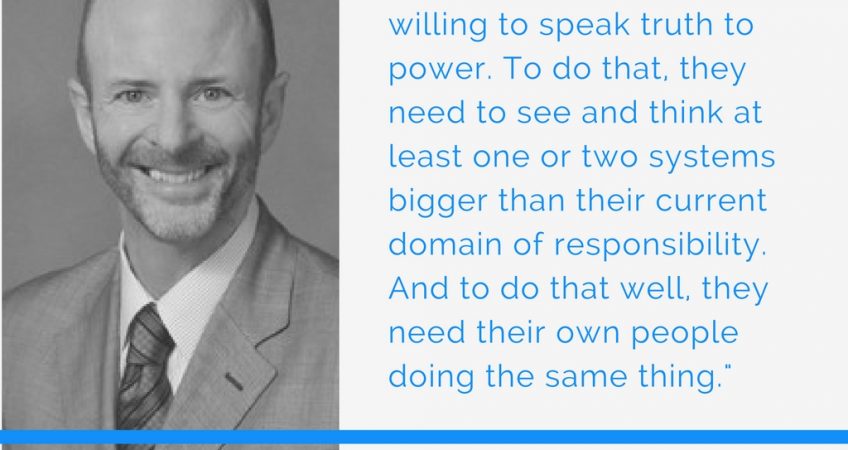Altyn is the model PhD and possibility thinker. Humble, exceptionally thoughtful, and formidably intelligent, Altyn is a great foil for testing ideas. As the Chief Solutions Officer at TSI, accountable for how our strategists are solving clients’ problems, Altyn offers some insights about strategic planning.
Altyn considers it a high honor to be working within the defense and national security community, especially because “I get to serve the people who serve the nation. My clients reflect the best of leadership, setting directions for their people and then getting out of the way. These leaders manage to create space, even under fire, where people tax their own abilities and experience to figure out the best way forward. They encourage their people to have purpose, and once they make a choice with strategic implications, to stick to it. These leaders find empowerment in accountability. Their appreciation for a concise and focused plan may have spoiled me, I suppose. I’ve become accustomed to seeing results and kicking up results on a regular basis.”
“What I notice is the way the best of these leaders hold people accountable. It’s all about a respectful, open dialogue. The leaders who avoid those hard conversations are ineffective. There’s no middle ground. Effective leaders know how to keep a great dialogue going—the good with the bad—and that’s why they have no problem delegating. It’s easier to take the risk to delegate when everybody knows—both leader and team member—that the dialogue doesn’t end with the assignment.”
“Leaders can forget that feedback is only part of the mix. They’re in place to enhance the best of everybody, sometimes as simply as an onsite coach with a keen sense of what people need to do and what they are capable of contributing. One of the single most daunting steps for a developing leader is to learn how to solicit feedback, listen to it, leverage it, replay it, and even encourage the respectful conflict it sometimes requires.”
Altyn believes that’s the billion-dollar question: How do we develop the willingness and even vulnerability required for these kinds of conversations?
“Without that level of personal authenticity it’s hard for a leader to gain people’s trust. With it, a leader can model for a group how to engage in a long-term dialogue about the strategic course and be sure great ideas and valuable answers will arise from active listening, whether there’s any real sense to start, or confusion, or conflict. Leaders use their plan like a guide to keep the entire process moving forward. This capacity for strategic dialogue travels up as well as down the proverbial ladder.”
“For the sake of their own people, leaders must be willing to speak truth to power. To do that, they need to see and think at least one or two systems bigger than their current domain of responsibility. And to do that well, they need their own people doing the same thing. The best academic leaders are not thinking about their tenured position or department but about how to make their institution better or more effective overall. An effective supervisor in a government organization is not focused only on his or her domain but on how to contribute two or three levels up.”
Such thinking typifies a skillful orchestral conductor who, amid the dynamic, ongoing flow of the music, can sense when the woodwinds are too soft, or the brass section too loud, and can guide the delicate adjustments that put the performance back into balance. When leaders find themselves at that kind of nexus, the way to act with full ownership of the wellbeing of the organization is to be fluent in the strategic plan and give full force to the creative dialogue keeping everybody fully informed and informing decisions fully.

